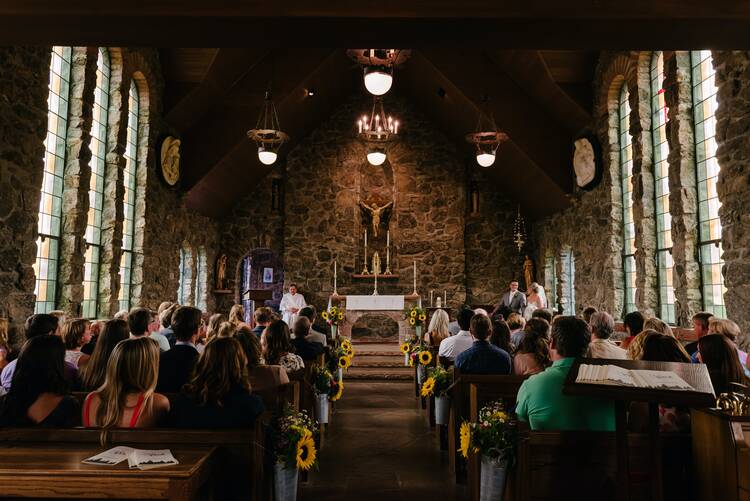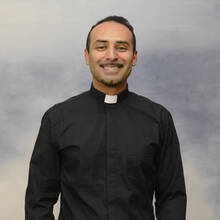Communal Discipline: The Public Voice of the Church
The word “church” (ekklesia) is rare in the Gospels, appearing in only two verses and only in Matthew’s narrative. In both cases, the community’s authority to forgive sins, its ability to “bind and loose” as Matthew puts it, is central.
For where two or three are gathered together in my name, there am I in the midst of them. (Mt 18:20)
Where can you practice a communal form of prayer more readily?
In your prayer can you hear the public voice of the church?
How do this Sunday’s readings challenge you?
We hear the church’s public voice most often in the liturgy, but it speaks in a variety of ways, including the Prayer of the Faithful and when praying the Divine Office. In our personal prayer, for example, we are invited to enter more closely with the word of God and also with the voiced concerns of the local church. This Sunday’s readings highlight the role of the church’s public voice as it speaks to maintain internal cohesion.
The word “church” makes its first appearance in Mt 16:18-19, when Jesus gives Peter the keys of the kingdom as a symbol of his authority within the community of believers. Peter, as its leader and representative, had authority over matters of forgiveness on earth, an authority that the other apostles exercised in communion with him (Jn 20:23). In this Sunday’s Gospel, this same authority is placed on the shoulders of the local community of faith, which could in some cases function as the public voice of the church. “Amen, I say to you,” Jesus explains, “whatever you bind on earth shall be bound in heaven, and whatever you loose on earth shall be loosed in heaven” (Mt 18:18). This awesome responsibility to hold members of the community accountable for their actions is based on the power of communal prayer and faith. “Again, amen, I say to you,” says Jesus, “if two of you agree on earth about anything for which they are to pray, it shall be granted to them by my heavenly Father” (Mt 18:19).
This Sunday’s readings reveal the source of the community’s disciplinary authority. It comes from prayer, from love for the least ones and from a willingness to forgive.
The passage in this Sunday’s Gospel reading addresses internal matters, when one disciple is at fault against another member of the assembly. The phrase “If a brother sins” is coded language for internal disputes in which all parties profess the same faith in Christ. This suggests that Matthew was speaking of a practice from own day that he believed was rooted in the early practice of the church. Drawing on a tradition established by Israel’s prophets and practiced among Jewish religious communities, the local assembly had the responsibility to challenge the offender to “turn from his way” so as to avoid death and estrangement (Ez 33:9).
Matthew wrote for early Christian communities that were intimate assemblies of only a few families. Discipline and order were essential. In a small setting, the harm of one member can injure the entire group. These passages also encouraged accountability for the offender. More than this, however, this Sunday’s readings reveal the source of the community’s disciplinary authority. It comes from prayer, from love for the least ones, and from a willingness to forgive. The public voice of the church, therefore, is only effective if it is rooted in Christ and bound together in prayer. “For where two or three are gathered,” reminds Jesus, “in my name, there am I in the midst of them” (Mt 18:20).








